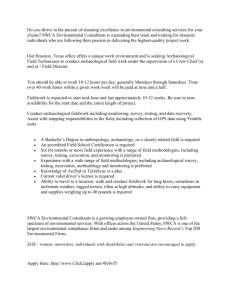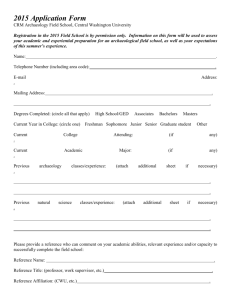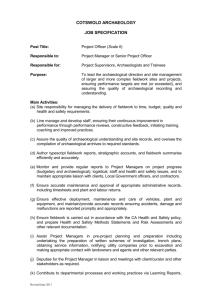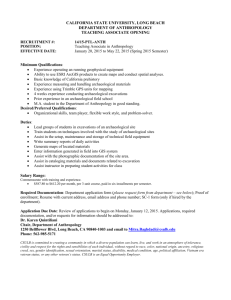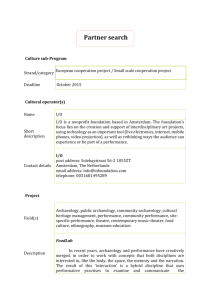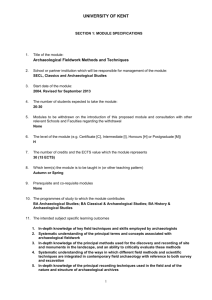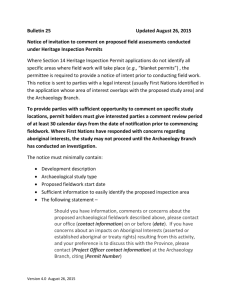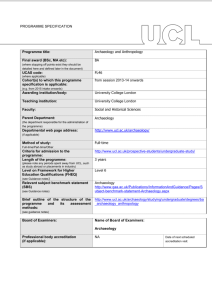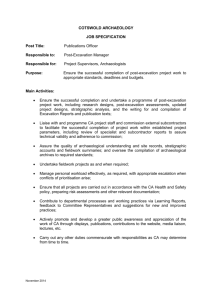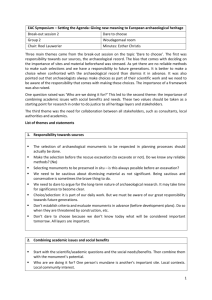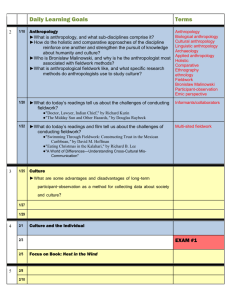Summer School in Anthropology and Archaeology, NUM
advertisement
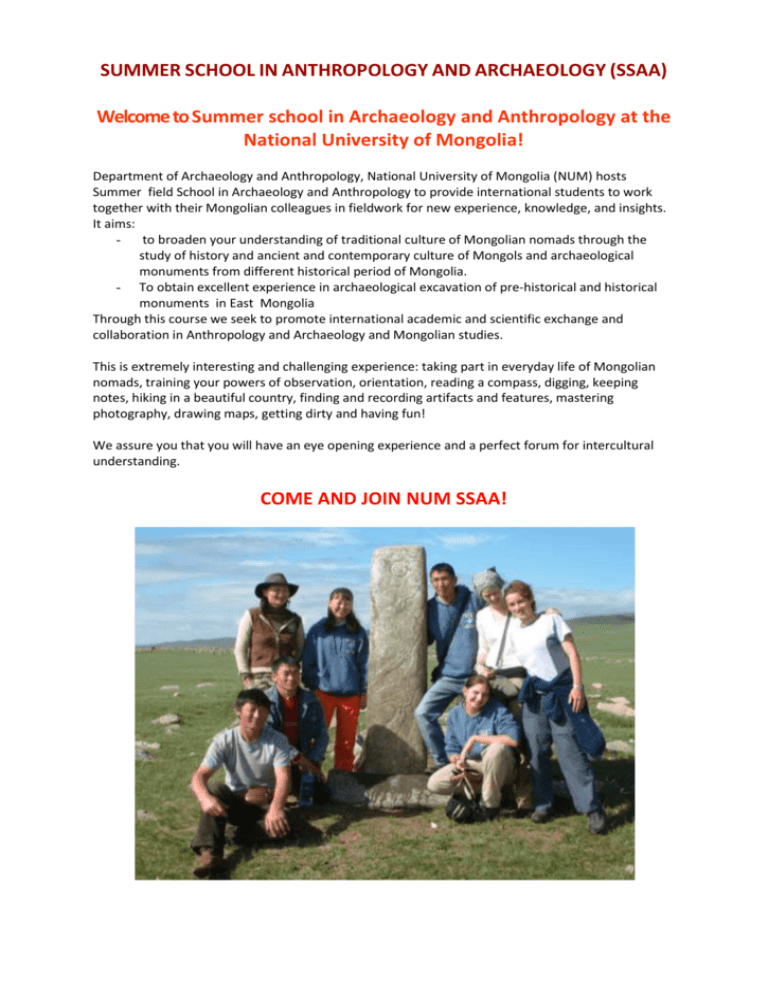
SUMMER SCHOOL IN ANTHROPOLOGY AND ARCHAEOLOGY (SSAA) Welcome to Summer school in Archaeology and Anthropology at the National University of Mongolia! Department of Archaeology and Anthropology, National University of Mongolia (NUM) hosts Summer field School in Archaeology and Anthropology to provide international students to work together with their Mongolian colleagues in fieldwork for new experience, knowledge, and insights. It aims: to broaden your understanding of traditional culture of Mongolian nomads through the study of history and ancient and contemporary culture of Mongols and archaeological monuments from different historical period of Mongolia. - To obtain excellent experience in archaeological excavation of pre-historical and historical monuments in East Mongolia Through this course we seek to promote international academic and scientific exchange and collaboration in Anthropology and Archaeology and Mongolian studies. This is extremely interesting and challenging experience: taking part in everyday life of Mongolian nomads, training your powers of observation, orientation, reading a compass, digging, keeping notes, hiking in a beautiful country, finding and recording artifacts and features, mastering photography, drawing maps, getting dirty and having fun! We assure you that you will have an eye opening experience and a perfect forum for intercultural understanding. COME AND JOIN NUM SSAA! Course Objectives and Goals The objectives of the field school are as follows: To promote in-depth awareness of cultural traditions of Mongolians; To introduce to basic archaeological field methods and techniques such as survey, excavation, and data recording. At the end of the course, students should be able to demonstrate: General knowledge of Mongolian culture history; Initial understanding of burial ritual and settlement patterns of ancient nomads Course Structure Summer school program is organized in a logical progression of three stage activities. Orientation (Three days) Ulaanbaatar city tour Visit to museums Fieldwork (Two weeks) Field-based learning is the milestone of summer fieldwork. Professors and lecturers with fieldwork experience and extensive knowledge in related areas of study supervise fieldwork students. Route of fieldwork: 1. Ulaanbaatar - Kherlen river valley archaeological sites (to visit archaeological sites: deerstones, and grave sites from Bronze Age, Xiongnu and Turkic period) – Khentii aimag center (visit local museums) – Munkhkhaan soum center, Sukhbaatar aimag – Delgerkhaan mountain excavation site (by microbus). The land surveys, site specific studies, and local family research will provide students with the opportunity to learn more about the culture of Kazakh people in Altai and steppe herders in the eastern Mongolia. Students will camp, cook and work as a team and may be divided into three field groups: survey, site evaluation, and oral history teams. Team members will rotate each in 2 to 3 days, giving each student the opportunity to participate in different activities. Research report (4 days) Students prepare a research paper and present it at the seminar at the end of the term. Accommodation and Work Environment Students must be prepared to live and work in a field camp, sleep in tents, share camp chores and maintenance, and engage in strenuous outdoor activities. The chores will include cooking, clean-up, and general maintenance of the field facilities. Outdoor activities will include hiking to survey quads and archaeological site locations. Students will be responsible for excavating, carrying heavy loads, and processing field collections. Personal Supplies Students in the course should arrive prepared for fieldwork and camping. Critical items include a tent, good and warm sleeping bag, rain gear, hiking boots, grubby clothes, toiletries, hat, and a camera. Your field equipment kit should contain a watch, compass, protractor, pencils and pens, and you should have your personal backpack, a portable water container, toilet paper, and insect repellant. The program will provide cooking gear, food, equipment, and transportation during the field. A complete list of personal supplies will be furnished upon registration for the course. Tuition and Fees Summer Field school fees include all program related expenses: tuition fee, in-country transportation, accommodation and homestay. The tuition fee for the course is 1500 USD and it does not include: costs associated with passports and other travel documents; international airfare to and from Ulaanbaatar a visa fee and visa extension fee; costs associated with travel after the end of the season and likewise; personal expenses such as purchase, entertainment and sightseeing, insurance premiums etc. For more information please contact: tumen@num.edu.mn Archaeological excavation camp in site.
